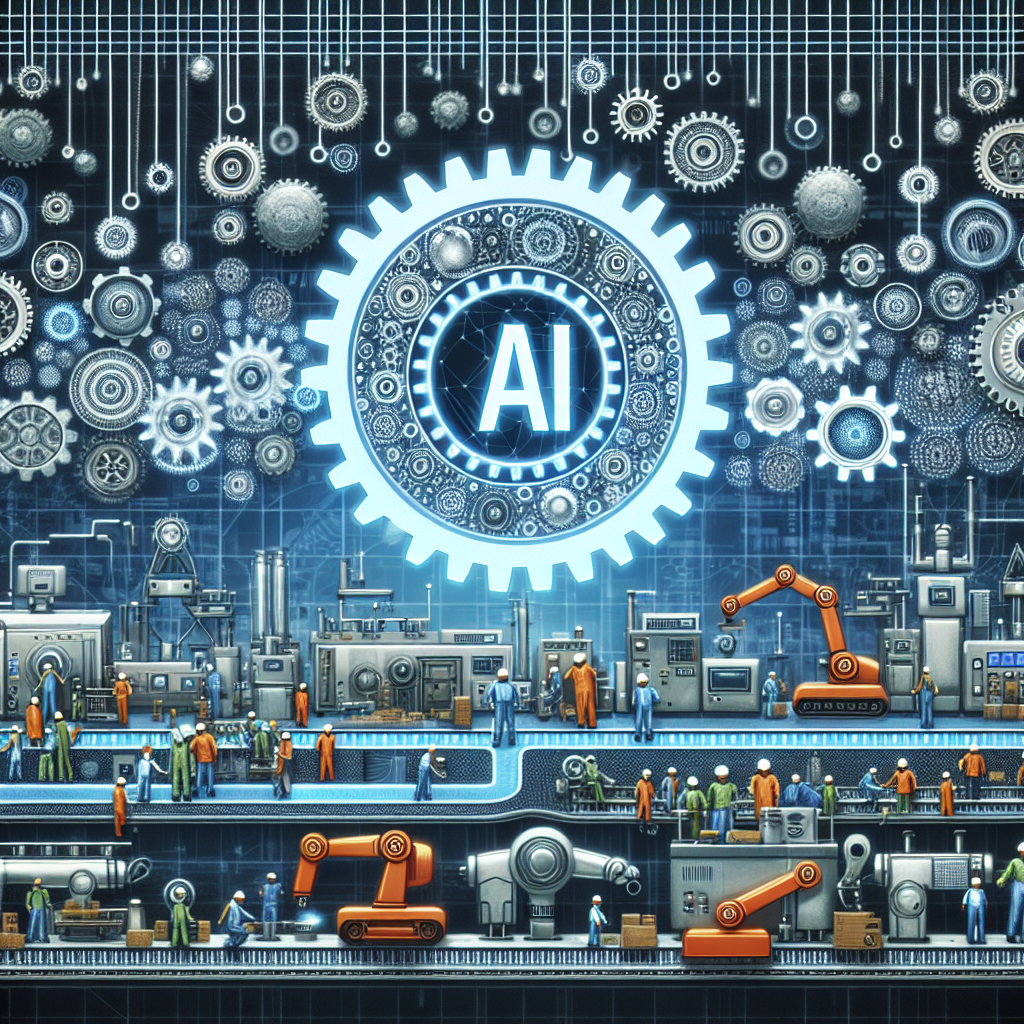Artificial intelligence (AI) has been revolutionizing industries across the globe, and the manufacturing sector is no exception. With advancements in technology and the rise of automation, many fear that AI will lead to the loss of manufacturing jobs. However, the impact of AI on manufacturing jobs is more nuanced than simply replacing human workers with machines. In this article, we will explore the various ways in which AI is transforming the manufacturing industry and its implications for the workforce.
The Role of AI in Manufacturing
AI has the potential to significantly improve efficiency, productivity, and quality in manufacturing processes. From predictive maintenance to supply chain optimization, AI can streamline operations and reduce costs for manufacturers. One of the key applications of AI in manufacturing is in the area of predictive maintenance. By analyzing data from sensors and other sources, AI can predict when machines are likely to fail and schedule maintenance before a breakdown occurs. This not only reduces downtime but also extends the lifespan of equipment, ultimately saving companies money.
AI also plays a crucial role in quality control. Machine learning algorithms can analyze images and detect defects in products with a level of accuracy that is difficult for human inspectors to achieve. This ensures that only high-quality products make it to market, reducing waste and improving customer satisfaction.
Furthermore, AI can optimize supply chain management by analyzing data from various sources to predict demand, optimize inventory levels, and identify potential bottlenecks in the supply chain. This leads to more efficient production processes and reduced costs for manufacturers.
The Impact on Manufacturing Jobs
While AI has the potential to create new job opportunities in the manufacturing sector, there is also concern about the displacement of workers due to automation. According to a report by McKinsey, up to 800 million workers worldwide could be displaced by automation by 2030. However, it is important to note that AI is not simply replacing human workers with machines but rather changing the nature of work in the manufacturing industry.
AI is likely to eliminate routine and repetitive tasks that can be easily automated, such as assembly line work and data entry. However, it also creates new opportunities for workers to upskill and transition to more complex and higher-paying roles. For example, workers can be trained to operate and maintain AI systems, analyze data to make informed decisions, and collaborate with machines to optimize production processes.
In addition, AI is expected to create new job roles in areas such as data analysis, software development, and AI ethics. These roles require skills that are in high demand in the digital economy and offer opportunities for workers to reskill and adapt to the changing labor market.
Overall, the impact of AI on manufacturing jobs will depend on how companies and policymakers navigate the transition to a more automated workforce. By investing in training and education programs, fostering a culture of innovation, and implementing policies that support workers through the transition, the manufacturing industry can harness the potential of AI to create a more efficient and sustainable future.
FAQs
Q: Will AI replace all manufacturing jobs?
A: While AI has the potential to automate routine tasks in manufacturing, it is unlikely to replace all jobs. Instead, AI is expected to change the nature of work by eliminating repetitive tasks and creating new opportunities for workers to upskill and transition to higher-level roles.
Q: What skills will be in demand in the manufacturing industry with the rise of AI?
A: Skills such as data analysis, software development, and AI ethics are expected to be in high demand in the manufacturing industry. Workers who possess these skills will be well-positioned to take advantage of the new job opportunities created by AI.
Q: How can workers prepare for the impact of AI on manufacturing jobs?
A: Workers can prepare for the impact of AI on manufacturing jobs by investing in training and education programs that focus on developing skills in data analysis, software development, and AI ethics. By upskilling and adapting to the changing labor market, workers can position themselves for success in the digital economy.
In conclusion, the impact of AI on manufacturing jobs is a complex and multifaceted issue. While there is concern about the displacement of workers due to automation, AI also has the potential to create new job opportunities and improve efficiency in the manufacturing industry. By investing in training and education programs, fostering a culture of innovation, and implementing policies that support workers through the transition, the manufacturing industry can harness the potential of AI to create a more sustainable future for workers and businesses alike.

